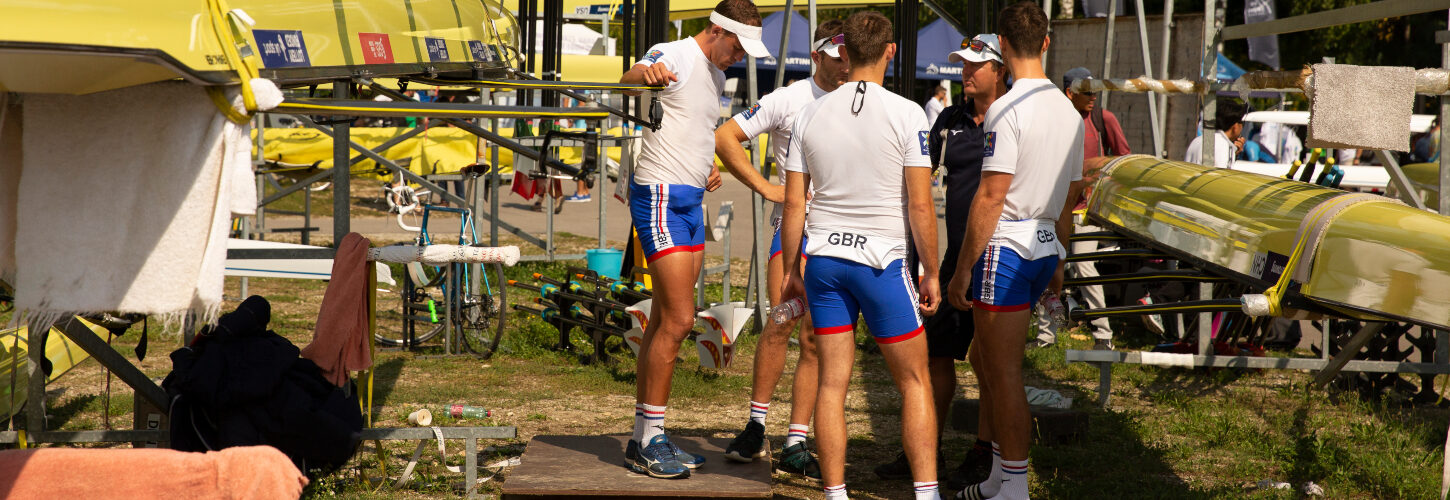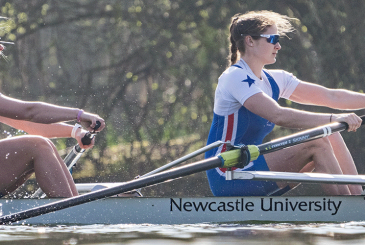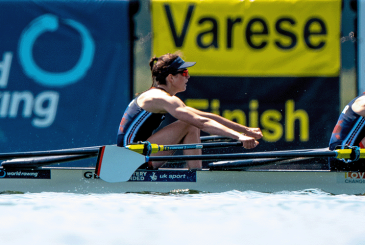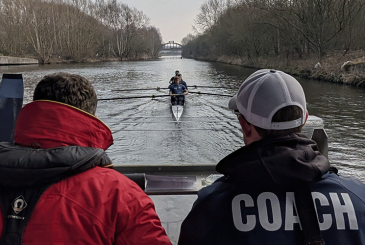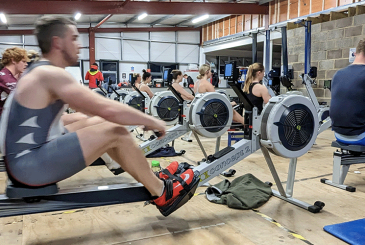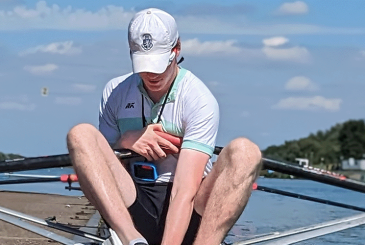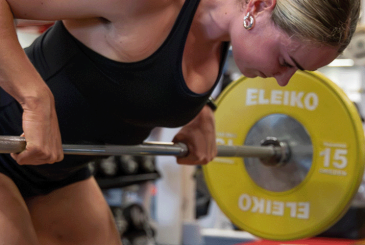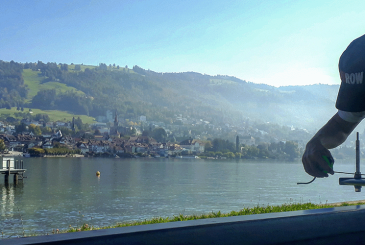Martin Gough talks to the four Olympic lead coaches about their squads and ambitions in the run-up to Tokyo
Back in December 2020, the GB Rowing Team announced its new-look senior coaching team, which gave four lead coaches greater responsibilities with each taking charge of the separate Olympic squads: men’s sweep, men’s sculling, women’s sweep and women’s sculling. The coaches have had a strong season which started with winning nine medals at the European Rowing Championships.
Paul Stannard has been leading the men’s sculling squad throughout this Olympiad and says of his role: “There’s more responsibility and a lot more work that has very little to do with coaching, but the core purpose of the job hasn’t changed much.”
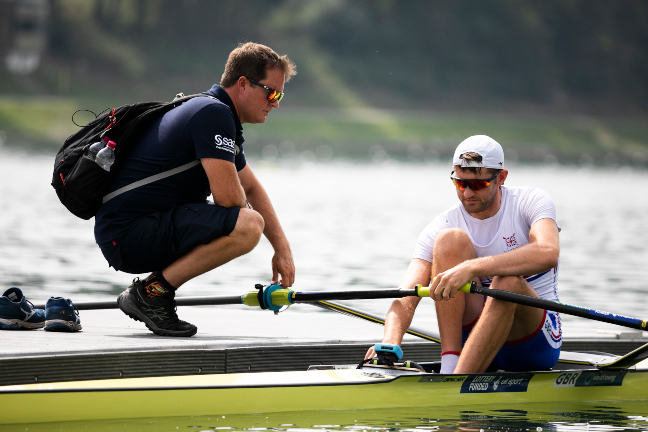
Reflecting on the Europeans, he says: “It was an amazing feeling to watch the team working so well together after 19 months without a race. The athletes were buzzing and the staff were working away quietly in the background.
“When we found out about Prince Philip passing away, Jo Bates (Team Manager) and the rest of the support staff were up late into the night cutting up 100 strips of black material and ironing them into ribbons for the crews and staff to wear over the weekend, as a mark of respect.
“Everyone in the team did a great job with the COVID mitigations and I would argue GB were the best team not only on the water, but off it as well, and in dealing with the COVID rules and regulations!”
Paul Reedy has been at the helm of the women’s sculling squad and James Harris the women’s sweep group for more than three years.
Australian Reedy, an Olympic silver medallist in the quad in 1984, coached lightweight double Kat Copeland and Sophie Hosking to gold at London 2012. In 2019 he helped Vicky Thornley to become the first female single sculler to secure an Olympic spot for Britain since the Sydney Games 21 years ago.
He says of the new role: “What has changed is the overall responsibility of creating the programme, to get the best out of the athletes we currently have, and helping select the best rowers for the job of rowing at the Olympics.”
“I don’t think athletes have really changed; they are still inquisitive, hungry, determined, competitive and are always striving to be better”
Steve Trapmore, Olympic champion in the eight in Sydney, has taken on the responsibility for leading the men’s sweep squad.
“I joined British Rowing for the opportunity to work with their coaching staff and to support the exciting echelon of athletes who were forming the backbone of the Tokyo Olympic cycle,” says Trapmore, who joined the team in 2018 from Cambridge University, having won the men’s Boat Race three times.
“I am now leading that same programme with a new coaching team, underpinned by a fantastic support team.”
His new colleagues are Robin Williams – his predecessor at Cambridge – who returns to the team after a spell as a consultant coach with the Spanish squad, and South African John Gearing, on a part-time secondment from Radley School where he has coached since 2007.
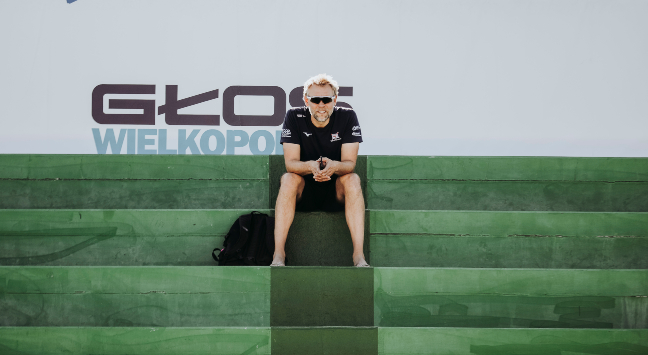
Much has changed since Trapmore’s time as an athlete, with grants for athletes to train full-time, the opening of the national training centre at Caversham in 2006 and a supporting infrastructure of physiologists and medical staff.
“My athletic international rowing experience was at the dawn of National Lottery funding and British Rowing has professionalised significantly since then,” he says. “But there will never be any shortcuts to performance – the reps still need to be done in the gym, the metres pulled on the erg and the miles rowed on the water.
“I don’t think athletes have really changed. They are still inquisitive, hungry, determined, competitive and are always striving to be better today than they were yesterday.”
This Olympiad has been a rebuilding period for the squad, with five bronze medal crews in the three World Championships before the COVID pandemic and the postponed 2020 season. In their first race since the 2019 Worlds, the men’s four and men’s eight both won gold at the Europeans last month and, with more to come as they learn from their first competition.
“Of course, I want to win. Everyone wants to win,” says Trapmore as he looks ahead to Tokyo this summer. “Most of all I want to honour the legacy of my predecessors and for the current team to grow as individuals and as a collective. This in turn will set the process, expectation and standard for the future of our sport in our country.”
Similarly, there has been a period of rebuilding for the women’s programme. Helen Glover, who announced a comeback in January, is one of just four returning Olympians, although all of them – Polly Swann, Thornley and Karen Bennett being the others – won medals in Rio.
“Coaching club crews for Henley was extremely rewarding and, in many ways, schooled me in most of the important things about how to win at the Olympics”
“With a significant number of retirements post-Rio, we have had a younger, less experienced squad,” says Harris, who was co-coach of the silver-medal women’s eight in Rio – GB’s first in that boat type.
“The start to the racing season was very positive with strong performances from the new-look four, and the reunited pair.
“I think it has been a huge team effort to make the return of Helen as successful as it was. Helen is an exceptional athlete and I believe the team that we, and she, has created around her has allowed her to adapt to the new challenge that she has set herself. And it has been great to see how this crew has quickly found its feet again.
“The women’s eight – due to the challenges with COVID and making sure we prioritise the health of the athletes – has still got a lot of room for improvement. It has a nice balance of younger athletes and some with more experience. They will have learnt a lot from the racing and, I’m sure when they race again, they will be significantly improved.
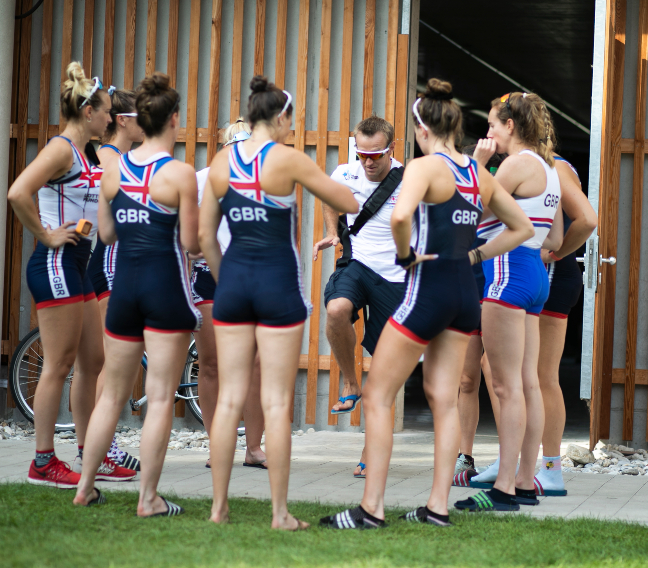
“GB in recent history have put all the crew boats on the podium at the Olympics. With this comes a reassurance that whatever boat type our female athletes are in, we have the experience to know what it takes to secure medal-winning performances at the Games.
“We have a youthful, exciting group of athletes and I’m sure they will exceed our expectations come Tokyo.”
“The athletes with the ability to spend time enjoying the moment have a very healthy balance of focus on the task at hand, whilst thriving and enjoying themselves”
Harris turned to coaching full-time aged 22, when he decided he was unlikely to make it as an international lightweight rower. One of his final achievements as an athlete was winning the Wyfold Challenge Cup at Henley Royal Regatta in 2008. His Tyne RC crew beat a four from London RC, where Paul Reedy was head coach at the time.
In fact, Reedy is one of the few coaches in the Great Britain set-up with experience of club coaching. He moved to London in 2001 having coached at university and national age-group level in Australia.
“I absolutely loved my time at London,” he says. “Coaching club crews for Henley was extremely rewarding and, in many ways, schooled me in most of the important things about how to win at the Olympics.
“Being the best crew is often not enough – the level of concentration required is significant. Don’t think too far ahead – each day’s racing is the most important. Don’t think you can build through the regatta – get the first race wrong and your options are diminished, get it right and things open up for you.”
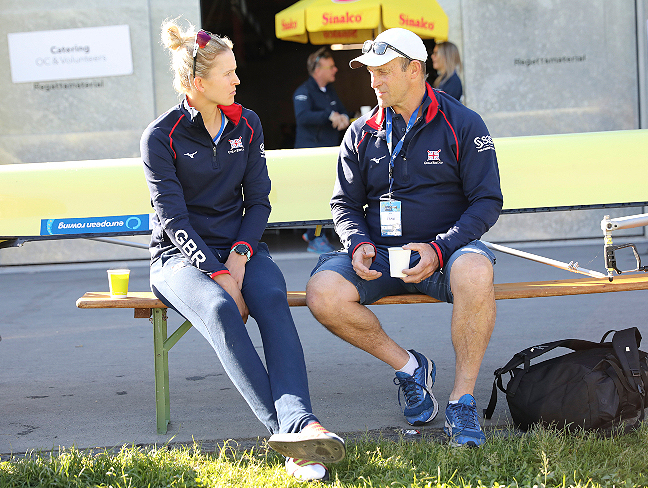
Besides Vicky Thornley, Reedy says: “The rest of the sculling group are relatively new to the team. Some are very new, with a lot of ability, but moderate to little experience at the senior level.
“Having someone turn up every day and train at a consistently high level like Vicky does is a great influence on how the rest of the group operate as well.”
Thornley started her rowing career at the World Class Start centre in Bath, headed by Stannard, who also introduced Glover and Heather Stanning to the sport there.
“Athletes can do more than they ever dreamed they are capable of,” Stannard says when asked what he has learned from his charges along the way.
Asked a similar question, Harris replies: “The biggest lesson is to enjoy the moment. I spend a lot of time in my head, planning and strategising.
“Over the years, it has become more and more clear that the athletes with the ability to spend time enjoying the moment have a very healthy balance of focus on the task at hand, whilst thriving and enjoying themselves.
“It really helps to maintain perspective, which over the past year with the delayed Games has been crucial for us as a squad.”
Trapmore adds: “People can be surprising creatures. Sometimes perceived limits can be broken in a stride, sometimes it can take an eternity to unlock.
“To be part of this process in a team environment is humbling, exhilarating and addictive all at the same time and the reason I do what I do.”
Photos: Nick Middleton


